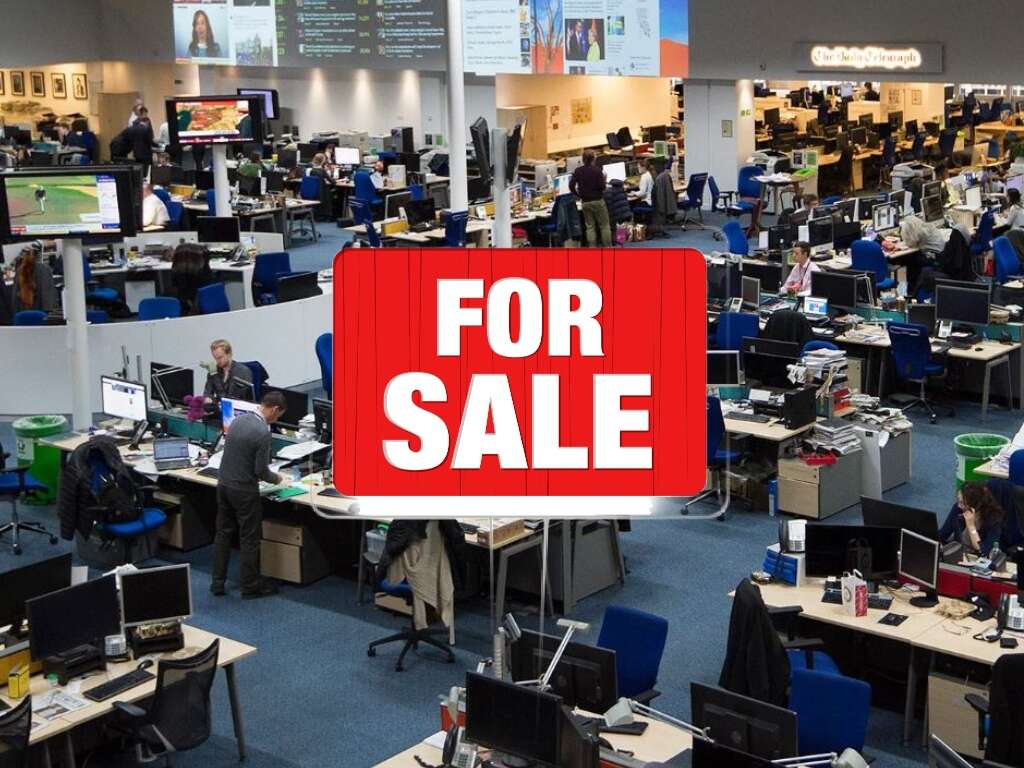
Telegraph readers today woke up to the news that the Barclay family is back in control of the publisher, some six months after Lloyds bank repossessed it.
The full outstanding debt has been repaid by Abu Dhabi-backed investment fund Redbird IMI.
But the future ownership of both the Telegraph and Spectator titles is still far from certain.
Redbird IMI is a joint venture between US private equity firm Redbird and Abu Dhabi-backed vehicle International Media Investments. It is being fronted by former CNN president Jeff Zucker and is ultimately controlled by UAE vice president Sheikh Mansour. It plans to now take ownership of the Telegraph and Spectator titles in a debt-for-equity swap with the Barclay family.
But this next phase of the deal has been put on hold because Culture Secretary Lucy Frazer has issued a Public Interest Intervention Notice which has triggered investigations by the Competition and Markets Authority and Ofcom.
Ofcom will look at the impact of the deal on the need for accurate news and free expression in newspapers, the CMA will look at competition issues.
Frazer has given interested parties until 26 January to report back with evidence.
The Telegraph has invited its own readers to make submissions to the Ofcom investigation.
In an addendum to its own report it said: “Many of our readers have raised concerns over the potential sale of Telegraph Media Group to the Abu Dhabi-linked Redbird IMI. While Ofcom carries out its investigation, we are inviting the submission of comments on the process. Email salecomments@telegraph.co.uk to have your say.”
What happens next in Telegraph sale process?
If Frazer decides that IMI Redbird are an unsuitable owner they will likely restart the auction process in order to recoup some of their investment. IMI Redbird could also come up with some governance system deemed sufficiently robust to safeguard the Telegraph’s editorial independence, as was the case when Rupert Murdoch bought The Times and Sunday Times in 1981.
If the IMI Redbird deal is blocked all the other former Telegraph bidders – ranging from Daily Mail publisher DMGT to regional publishing giant National World – could come back into play.
Meanwhile, The Telegraph and Spectator will continue to be overseen by three independent directors while the Government carries out its review.
According to Sky News dozens of executives and editorial staff at the Telegraph could secure substantial cash windfalls as part of an incentive plan put in place by Lloyds to secure the sale. CEO Nick Hugh and editor Chris Evans were reported to be among the 30-odd recipients of the proposed scheme.
Former Telegraph editor Charles Moore questions possible Abu Dhabi acquisition
Former editor of the Daily Telegraph and Spectator Charles Moore outlined the concerns many Telegraph insiders, readers and supporters have about the IMI Redbird deal.
In a comment piece he said: “Sheikh Mansour is a prominent member of the family that rules Abu Dhabi, the leading component of the United Arab Emirates (UAE). The UAE being a Gulf princedom, it is not really possible to distinguish between the family, its businesses and the state.
“Which is a long-winded way of saying that, if the repayment/sale goes through, this newspaper (and The Spectator) would be controlled by a foreign state. That, too, is a change I have not seen before, and never expected to see.
“Imagine that The Telegraph (or any other British national newspaper, left, right or centre) were nationalised by the British government. There would, to put it mildly, be a stink. It would be seen as an unprecedented power grab by the state against the freedom of the press. Luckily – though the freedom of the press is never completely secure even here in Britain – newspaper nationalisation is seen as beyond the pale.
“Yet now, perhaps the week after next, the nationalisation of a British national newspaper seems possible. It would be nationalisation by a country which does not have press freedom. The UAE may be one of the better-governed Arab states and is traditionally friendly to Britain, but its best friends would not pretend that it is a democracy, or that it has institutionalised the rights and liberties of the Western world.
“Those same friends do argue, however, that Abu Dhabi would be a ‘passive investor’. RedBird IMI promises the retention of the existing editorial teams and guarantees of editorial independence.
“I would not say that these promises are insincere. I merely observe that they are always made in controversial media takeovers and end up making little difference to the structure of real power.”
Email pged@pressgazette.co.uk to point out mistakes, provide story tips or send in a letter for publication on our "Letters Page" blog
